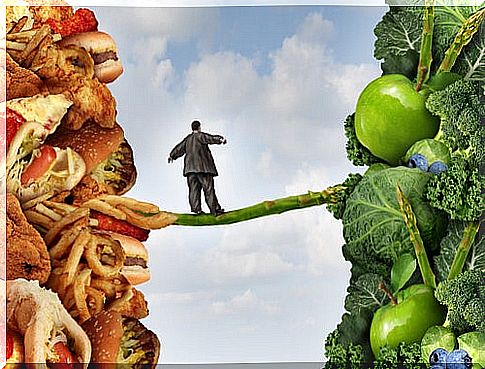Stress And Poor Nutrition

Stress is a problem in itself, but sometimes stress can also lead to unhealthy lifestyles. A vicious circle arises in which you eat poorly because you are stressed.
The number of people experiencing stress associated with nutritional deficiencies and poor eating habits continues to increase. When we are under a lot of pressure and experience a lot of stress, we tend to choose foods with a lower nutritional value, such as foods that are high in refined sugars and saturated fats. These unhealthy food choices can lead to even more stress in the long run, as well as other health problems.
One way to regulate stress is to pay attention to diet. Below we have listed some common unhealthy eating patterns that are related to stress. When you can recognize and control these eating patterns, you will be able to regulate or at least prevent your stress levels from skyrocketing.
1. Drinking too much coffee
Coffee is a strong stimulant that makes us feel full of energy and helps to combat fatigue and sleepiness. However, the effects of coffee have a profound impact on the body and the drink may be addictive.
While coffee may also provide benefits to some extent, too much caffeine has been shown to amplify stress. Caffeine can also be found in tea, some soft drinks, energy drinks and chocolate.
Caffeine raises levels of cortisol – the stress hormone – which can cause headaches, palpitations and nervousness.

2. Eating Foods That Increase Cortisol Levels
Coffee isn’t the only food that raises cortisol levels. Refined sugars and fast carbohydrates do this too. Foods rich in saturated and trans fats can also cause high cortisol levels. These fats can be found in snacks and fried foods.
In large amounts, animal products such as red meat, cheese and full-fat dairy products can cause imbalances in cortisol levels. To control cortisol levels, it is better to choose slow carbohydrates rich in fiber and foods rich in monounsaturated and polyunsaturated fatty acids.
3. Skipping Meals
Many people skip meals when they experience stress. However, food is fundamental to managing stress. Through food you provide yourself with the energy and nutrients needed to function properly. However, as we have seen, this does not mean that you can just eat anything.
For many people, the excuse for not eating is having too much to do. However, simply taking the time to eat relaxes the mind and body, relieving some built-up tension.
One way to eat healthy without complicating life is to drink green, energizing smoothies. They are easy and quick to make and provide you with energy and nutrients that are easily absorbed.

4. Don’t drink water
Drinking water is essential for the proper functioning of the body and brain. Water not only fulfills a vital function, it also has a powerful effect against stress. When we take a moment to drink water, our brains receive a message of calm.
Because if you have the time to stop and drink, it means that you are in no way in danger, this relaxes your mind.
5. Compulsive Eating
Another response to stress is compulsive and emotional eating, especially if you have not eaten or drunk for long periods.
Emotional eaters tend to choose unhealthy foods that are high in fat and calories. To avoid this, make sure you always have something healthy close at hand to satisfy your hunger. Fresh fruit and water are especially good options.
Poor nutrition does not only affect stress levels. It also leads to low immunity and can cause serious health problems. If you eat right, you will reduce stress and have better physical and mental health.









